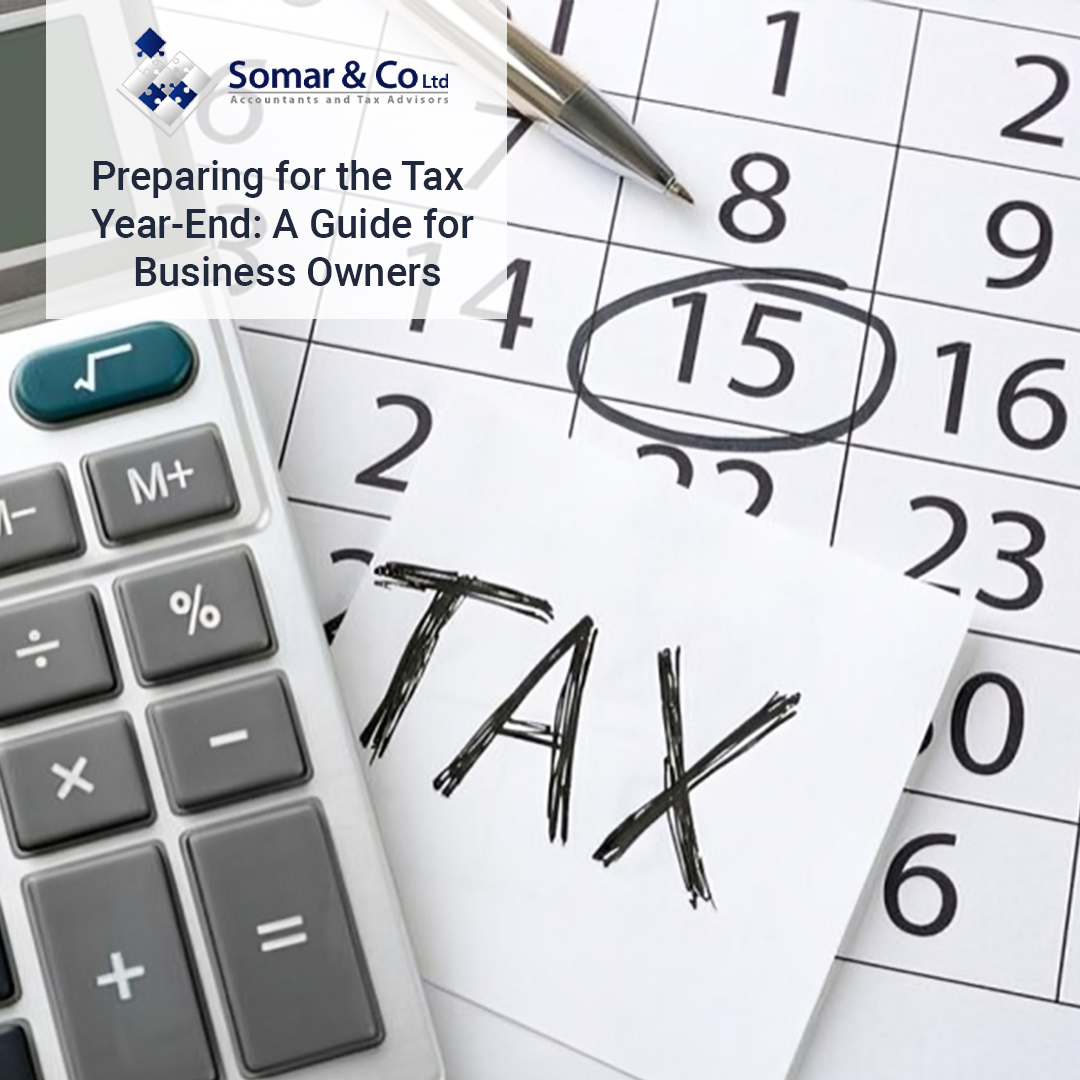
As the tax year-end approaches, business owners often face a hectic period of financial preparation. Starting early can make a significant difference, helping you avoid last-minute stress and enabling a more seamless tax filing process. Proper year-end preparation not only helps you meet compliance requirements but can also reveal opportunities to maximize deductions, improve cash flow, and strengthen your business's financial health. Here’s a step-by-step guide to help you tackle the tax year-end with confidence and efficiency.
Organize Your Financial Records
Having accurate and complete financial records is the foundation of effective tax filing. Begin by reviewing all income, expenses, and receipts for the year to ensure that everything is documented. Make sure every business expense is accounted for, as overlooked expenses could mean missed deductions. Using accounting software can streamline this process, making it easier to generate reports, categorize expenses, and ensure that all relevant documents are in order. Additionally, organized records can help you manage your budget more effectively and identify any financial trends worth noting as you prepare for the next fiscal year.
Review Your Payroll and Employee Benefits
Payroll and employee benefits can be particularly complex areas, and year-end is an ideal time to make sure everything is accurately recorded. Double-check your payroll records to ensure that wages, bonuses, and benefits have been processed correctly. If you offer employee benefits, verify that each employee’s contributions and withholdings are accurately documented. Errors in payroll or benefits can lead to compliance issues and tax complications, so taking the time now to review your records can help you avoid potential penalties and ensure compliance with tax regulations.
Reconcile Bank Accounts
Reconciling your bank accounts is essential to catch any discrepancies between your bank statements and your bookkeeping records. This process involves matching your recorded transactions with your bank statements, which can help identify any outstanding payments, double entries, or unnoticed bank fees. Not only does reconciling provide an accurate picture of your cash flow, but it also ensures that your financial records reflect the true state of your accounts before the year-end. Bank reconciliation can help reduce errors, provide a clearer picture of your financial health, and simplify tax filing when it’s time to submit your records.
Assess Your Assets and Inventory
For businesses with significant assets or inventory, reviewing their valuation and condition is crucial. If any inventory is damaged, obsolete, or unsellable, consider writing it off, as it can reduce your taxable income. Likewise, assets such as equipment and machinery may be eligible for depreciation, which can lower your tax liability. Asset valuation is not only important for tax purposes, but it also helps in planning future investments or replacements and maintaining a clear understanding of your business’s assets. Conduct a thorough review of your inventory and assets to ensure that they are valued correctly and make any necessary adjustments that could benefit your tax situation.
Meet with a Tax Professional
Engaging with a tax advisor before the year-end can provide you with valuable insights and allow you to implement last-minute tax-saving strategies. A tax professional can help you identify additional deductions, confirm that you’re in compliance with current regulations, and discuss any changes in tax laws that may affect your business. They can also assist with tax projections and help you plan for upcoming expenses. Meeting with a professional provides an opportunity to optimize your tax strategy, minimize liabilities, and ensure that your business is prepared for any potential changes in the new tax year.
Additional Tips for a Smooth Year-End Process
- Evaluate Charitable Contributions: If your business has made any charitable contributions, ensure they are recorded properly, as they may be tax-deductible.
- Consider Retirement Contributions: If applicable, make additional contributions to retirement plans before the year-end, as they can reduce taxable income.
- Adjust Estimated Tax Payments: If you’ve had a more profitable year, consider adjusting your estimated tax payments to avoid underpayment penalties.
Preparing for the tax year-end can be a manageable process with careful planning and timely action. By organizing records, reconciling accounts, reviewing payroll and inventory, and consulting with a tax professional, you set your business up for a smoother tax season and greater financial health. These steps not only help reduce the stress of tax season but also provide opportunities for tax savings and financial insight. With proper year-end preparation, you can confidently close out the year, start the next one strong, and focus on what truly matters growing your business.